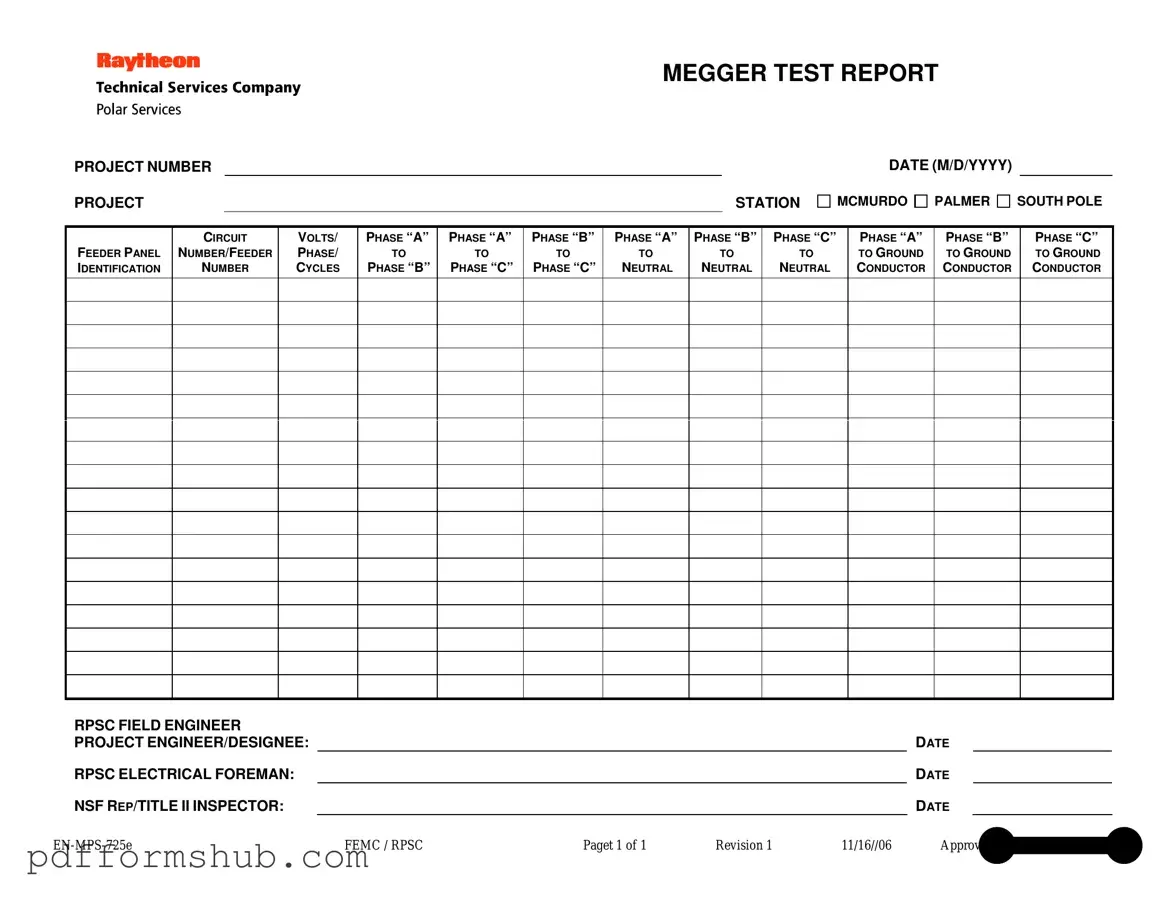Fill in Your Megger Test Form
The Megger Test form is a critical document used to record the results of insulation resistance testing on electrical systems. This form captures essential data such as project identification, voltage levels, and test results for various phases and conductors. To ensure accuracy and compliance, it's important to fill out this form correctly; you can get started by clicking the button below.
Customize Form

Fill in Your Megger Test Form
Customize Form

Customize Form
or
Free PDF Form
Short deadline? Complete this form now
Complete Megger Test online without printing hassles.